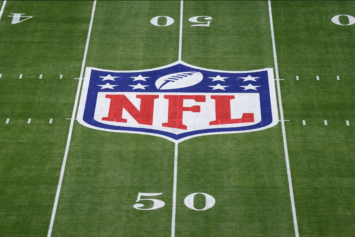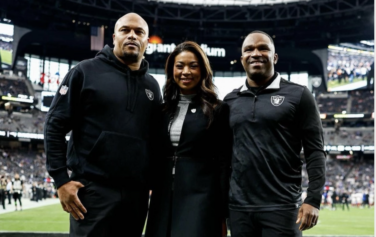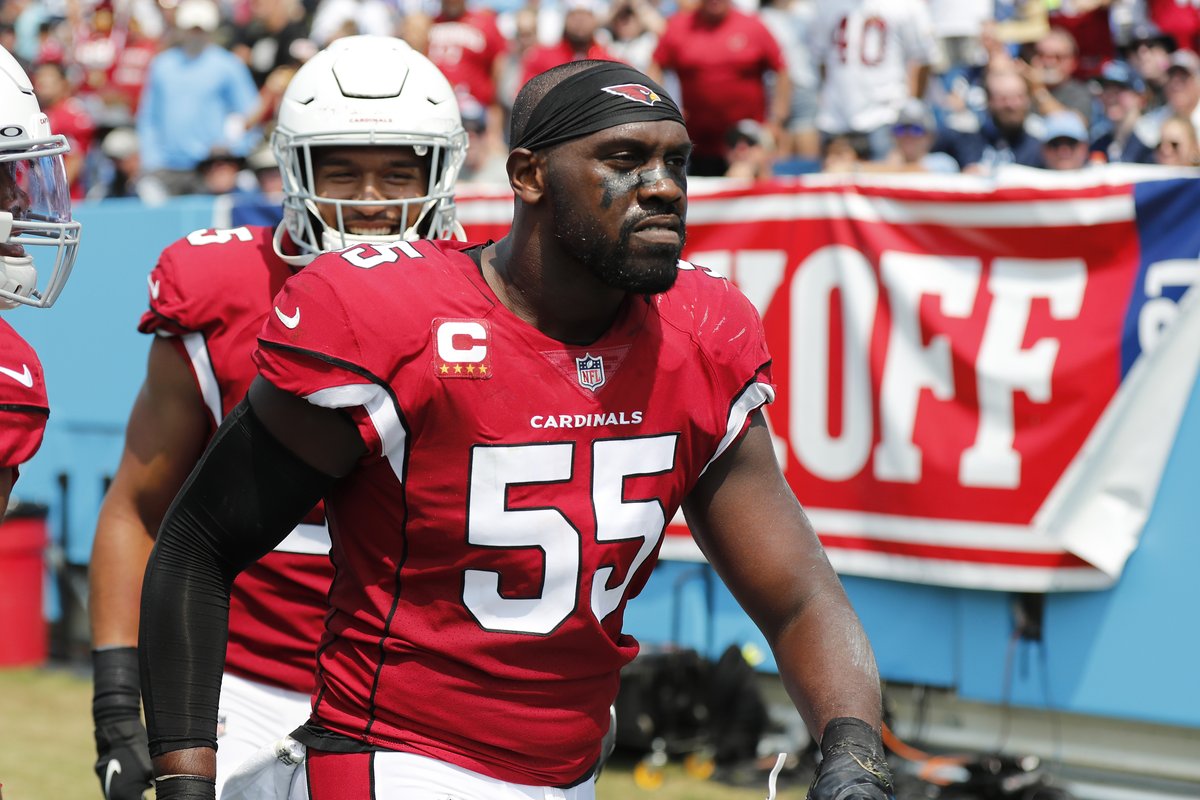In the world of American sports, there are very few athletic endeavors that are as undervalued as cheerleading. Look no further than the NFL for proof.
The multi-billion dollar organization is infamous for underpaying their cheerleading squads and for putting them in situations where they are physically harassed and emotionally bullied.
But today, many cheerleaders across the country are standing up for their rights by suing their teams for various forms of discrimination.
With all of the lawsuits that have erupted since 2014, it can be hard to keep track of the headlines. But there’s one film that synthesizes the movement into one powerfully complex narrative.
A Woman’s Work: The NFL Cheerleading Problem, which debuted at the 2019 Tribeca Film Festival, is a documentary that follows two former cheerleaders — Lacy Thibodeaux-Fields and Maria Pinzone — and the development of their lives since they filed complaints in 2014.
When Thibodeaux-Fields was a member of the Oakland Raiderettes, her salary was merely $1,250 ($5 a day). Pinzone, who used to train for hours with the Buffalo Jills, often didn’t get paid at all — not even to make appearances.
Thibodeaux-Fields cites having to pay hundreds of her own money to travel to games, sell swimsuit calendars and do her own hair and makeup. Pinzone claimed she dropped around $600 for her Jill uniform.
And yet with all of these costs, these women signed contracts to be employees of a large for-profit organization that pays rookie football players nearly $500,000 a year. It makes you question why anyone would get into a field that so blatantly ignores gender equity.
Thankfully, Chinese/Canadian director Yu Gu does an excellent job peeling the way the layers behind Thibodeaux-Fields’ and Pinzone’s dreams and motivations, thus dismantling the harmful stereotypical image that cheerleaders have in society.
These women are not just pretty faces solely bent on pleasing men. Both are extremely ambitious, risk-taking, intelligent women who shared a love of dance and being a part of something greater than themselves.
We see their trophy cabinets. Their old home videos. We see them as young girls wanting nothing more than to take over the world in their own way.
Thibodeaux wanted to be one of the best dancers sports has ever seen. Pinzone wanted to continue participating in a sport she loved and serve her community in anyway she could.
Becoming an NFL cheerleader appeared to be a great opportunity to them. Among the Raiderettes and the Jills, they found a family. They created fond memories. An identity.
So when they decided to file lawsuits against their team, it was not only difficult for them to walk away from their sisterhood, they had to grapple with redefining themselves after leaving a sport that was so close to their hearts.
From a broader perspective, it could be easy to say that this whole NFL mess is the typical tale of abusive male leadership taking advantage of women. But Gu shows that it’s not that simple — that women also have a part to play in the system.
She interviews many former NFL cheerleaders who believed that doing their job was a privilege. They weren’t in it for the money, so why would they ask for more? To them, the lawsuits were a shame.
Pinzone talks about how her director would emotionally bully the girls. To decide who could be on the team, the director had them perform a “jiggle test” to see if their bodies were bouncing in the right places.
Thibodeaux and Pinzone are both honest about how their old also insecurities led them into such an unwanted situation.
The Cheerleading Identity
Overall, the film suggests that preserving toxic masculinity and patriarchal paradigms is not limited to gender.
But I think the real genius of Gu’s work is embedded in the title.
“A woman’s work is never done,” Thibodeaux-Fields says in the film as she’s taking care of her kids.
One can almost hear the sigh between the words. This old idiom originally referred to how some women worked endlessly around the home, raising children, doing household chores and sometimes taking on an outside job.
Back in the day, housewives often sacrificed their own needs in order to do everything that’s required for “good of the family”. Throughout the film, Gu cleverly cuts back to television clips of women taking care of their homes in what looks like the ’50s and ’60s.
While Gu does show Thibodeaux-Fields wrestling with her new identity as a mom and housewife, the idiom takes on another meaning when we look at women and their role in the sports arena. For many female athletes (and other minorities), it can be challenging to be both an athlete, an activist and whatever other identity you want to tack on.
Some female athletes end up sacrificing their careers for a greater cause.
To bear the weight of the future of your sport and to perform at your best can be physically and emotionally draining. To speak up for those who are marginalized can put your job at risk and potentially harm your team. The repercussions could last for years.
Throughout the movie, Pinzone has trouble grappling with the thought that she could have dismantled the Buffalo Jills. She feels as if she’d been abandoned by her beloved sisterhood and at times doubts if she did the right thing.
For many women, to speak up means to sacrifice one’s sense of security. Breaking down the walls that have kept us so small can feel lonely. But the ripples can create a wave.
In 2018, Thibodeaux-Fields and Pinzone’s inspired many other cheerleaders to file lawsuits against their teams. Those women opened the door for others to demand what’s right.
Perhaps the “woman’s work” doesn’t just refer to cooking and cleaning anymore: Maybe it’s about what it now takes to pave a better path for others. To create a better world.
It’s work that calls for all genders to chip in.



